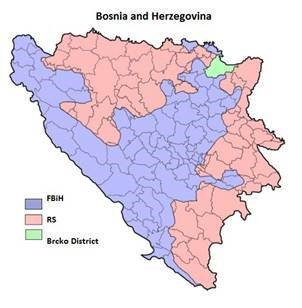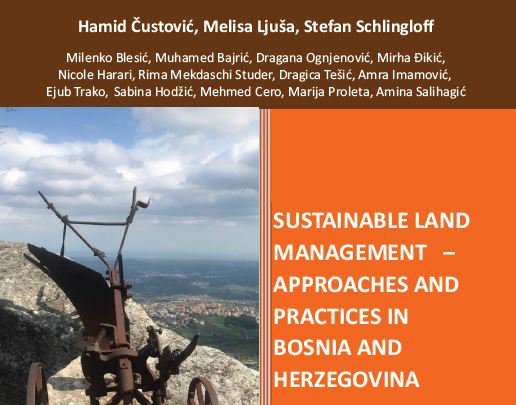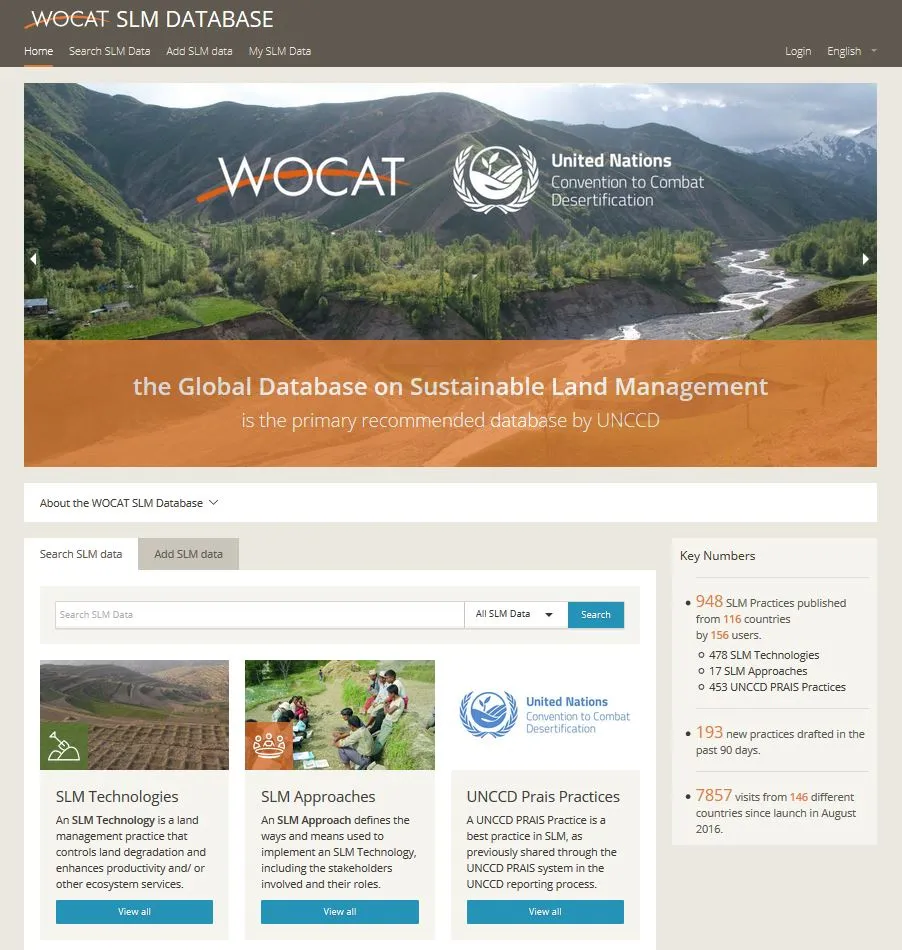
Bosnia and Herzegovina
About DS-SLM in Bosnia and Herzegovina
The objective of the GEF funded global project “Decision Support for Mainstreaming and Scaling up of Sustainable Land Management” (DS-SLM) is to improve the capability and the decision making of countries and regions engaged in the mainstreaming and scaling up of Sustainable Land Management (SLM) to combat Land Degradation (LD), as well as to enhance Food Security, address mitigation and adaptation to Climate Change, and conservation of Biodiversity.
The project is implemented by the Faculty of Agricultural and Food Sciences, University in Sarajevo (Federation of Bosnia and Herzegovina entity) and the Faculty of Agriculture, University of Banjaluka (Republic of Srpska entity). The project is implemented with 290,000$ GEF funds and 990,000$ in-kind contribution of Bosnia and Herzegovina.
Main project's outputs
Output 1: Overview of existing strategies related to SLM and best practice-up-scaling and mapping out gaps and opportunities in entities in Bosnia and Herzegovina.
Output 2: Introduction to WOCAT methodologies used for SLM and contribute to the global online DLDD and SLM decision-support platform.
Output 3: Enabling environment for knowledge sharing and identification of best SLM practices.
Output 4: Strengthened cooperation between entities in Bosnia and Herzegovina for DLDD - SLM scaling up and experience sharing processes on regional and global level
Activities of DS-SLM in BiH project are divided between two entities because land and land resources are under exclusive jurisdiction of the entities and regulated by the entity legislation.

Contacts
Republic of Srpska:
Prof. dr Mihajlo Markovic, DS-SLM project coordinator
Expert Group Leader (SLM)
Institute of Agroecology and Soil Science
Faculty of Agriculture, University of Banja Luka
Bulevar vojvode Petra Bojovica 1A
78000 Banja Luka
Republic of Srpska
Bosnia and Herzegovina
Phone: +387 51 330 901
Fax: +387 51 312 580
e-mail: mikamarkovic60@gmail.com
mihajlo.markovic@agro.unibl.org
Federation of Bosnia and Herzegovina:
Prof.dr Hamid Čustović, DS-SLM project coordinator
Faculty of Agricultural and Food Sciences, University of Sarajevo
e-mail: custovic.hamid@gmail.com
Results Federation of Bosnia and Herzegovina
Results Republic of Srpska
Publications

Links
http://www.rtrs.tv/vijesti/vijest.php?id=288174
http://www.herceg.tv/drustvo/10082/kako-do-odrzivog-upravljanja-zemljistem-video
https://www.youtube.com/watch?v=eTnVftrfbsc
https://ppf.unsa.ba/clanak.php?ID=184
https://fmpvs.gov.ba/2018/02/21/bih-dio-globalnih-trendova-o-brizi-za-tlom/
http://www.fmoit.gov.ba/ba/clanak/1663/bih-dio-globalnih-trendova-o-brizi-za-tlom
http://opcinasapna.ba/v4/obavjestenja/1033-bih-dio-globalnih-trendova-o-brizi-za-tlom
http://www.biznisinfo.ba/bih-dio-globalnih-trendova-o-brizi-za-tlom/
https://www.oslobodjenje.ba/dosjei/teme/gubi-li-bosna-i-hercegovina-tlo-pod-nogama http://balkans.aljazeera.net/video/ugrozeno-najkvalitetnije-poljoprivredno-zemljiste-u-bih http://ba.n1info.com/a251474/Video/Da-li-je-FBiH-ostala-bez-najboljih-poljoprivrednih-zemljista.html http://www.federalna.ba/bhs/vijest/235292/natura-magazin-13042018
https://www.biznisinfo.ba/poljoprivredno-prehrambeni-fakultet-cuvar-bh-tla
https://ppf.unsa.ba/clanak.php?ID=442
https://ppf.unsa.ba/clanak.php?ID=412
https://rtvzivinice.tv/projekat-za-sanaciju-degradiranog-zemljista-u-zivinicama/
http://www.federalna.ba/bhs/vijest/257914/natura-magazin-30112018
